- Improving Undergraduate Education
- Class of 2017 Profile
- First-Year Student Enrollment
- Enrollments and Bachelor’s Degrees Awarded By Major, AY 2013/2014
- New Academic Programs
- Post-Graduation Destination Profile CAS Class of 2013
- Strengthening Graduate Education
- GRS Registered MA/MFA/MS Students (by Department)
- GRS Registered PhD Students (by Department)
- Titles of Doctoral Dissertations Completed in 2014 (Alphabetical by Author)
- Enhancing a World-Class Faculty
- New CAS Faculty, AY 2013/2014
- Stewarding Our Resources
- Budget
- Growing Our Capacity: The Campaign for CAS
- The Campaign for CAS: 2013/2014 Status Report
Contents
Attracting and Nurturing the Best Students
Class of 2017 Profile
Profile of the Class of 2017, Registered and Settled Through Fall 2013 Final (Official Mid-Semester)
Total Number of Entering Students, Fall 2013: 1,795
| Male | 36.4% (653) |
| Female | 63.6% (1,142) |
Top 10 Programs/Majors
| Undeclared | 450 |
| Economics | 187 |
| Biology | 179 |
| International Relations | 103 |
| Psychology | 98 |
| Political Science | 68 |
| Mathematics | 65 |
| Biology-Cell/Molecular/Genetics | 60 |
| Neuroscience | 52 |
| Computer Science | 47 |
Academic Accomplishment
The class entering in fall 2013 was the most accomplished academically in the College’s history.
| Credentials | Average | Middle 50% |
|---|---|---|
| SAT Critical Reading | 621 | 570-690 |
| SAT Math | 681 | 630–730 |
| SAT Writing | 647 | 600–730 |
| SAT Composite | 1950 | 1840–2050 |
| ACT Composite | 29 | 28-31 |
| High School Rank in Class | 90.0 | -- |
| High School GPA | 3.62 | -- |
| Rank in Class | |
|---|---|
| Top 5% | 36.9% |
| Top 10% | 67.9% |
| Top 15% | 83.1% |
| Top 20% | 91.2% |
| Top 25% | 97.0% |
| Top 30% | 99.6% |
| Top 50% | 100% |
The Class of 2017 demonstrates a wide range of ethnic diversity; 27% of the class identifies as international.
| Ethnicity | Number | % of Class | % of Domestic Known |
|---|---|---|---|
| African American | 85 | 4.7% | 7.1% |
| Hispanic | 176 | 9.8% | 14.7% |
| Native American | 13 | 0.7% | 1.1% |
| Hawaiian/Pacific Islander | 6 | 0.3% | 0.5% |
| Asian | 260 | 14.5% | 21.7% |
| Caucasian | 660 | 36.8% | 55.0% |
| International | 484 | 27.0% | -- |
| Unspecified | 111 | 6.2% | -- |
| Total: | 1,795 | 100.0% | 100.0% |
Geography
Most domestic (US) students who entered in fall 2013 are from the Northeast and California, with Massachusetts leading the way. The largest contingent of international students is from the People’s Republic of China (324 freshmen).
| Geography | |
|---|---|
| # of states | 43 |
| % from out of state | 85.3% |
| Top States | |
|---|---|
| Massachusetts | 264 |
| New York | 201 |
| California | 161 |
| New Jersey | 106 |
| Pennsylvania | 81 |
| Connecticut | 59 |
| Florida | 58 |
| Illinois | 41 |
| Maryland | 36 |
| Texas | 27 |
| Other states, D.C. | 246 |
| Territories, APO | 9 |
| Foreign address | 506 |
| Territories represented: | GU, PR, AF Pac, APO Afr/Can/Eur/MidlEast |
| State(s) not represented: | AK, MS, MT, NE, ND, SD, WV, WY |
| Region | |
|---|---|
| New England | 21.1% |
| Mid-Atlantic | 24.0% |
| Midwest | 5.4% |
| South | 7.1% |
| Southwest | 1.9% |
| West | 1.2% |
| Pacific | 10.9% |
| Other | 28.4% |
The majority of entering international students in Fall 2013 came from Asia, with the greatest number coming from China.
| Top Countries by Citizenship | |
|---|---|
| China (Incl. Hong Kong) | 324 |
| Republic of Korea | 24 |
| India | 17 |
| Taiwan, R.O.C. | 8 |
| Canada | 8 |
| Republic of Singapore | 7 |
| United Kingdom | 7 |
| Japan | 6 |
| Greece | 6 |
| Venezuela | 6 |
First-Year Student Enrollment
The table below shows the intended majors of students who applied to CAS and who were admitted to CAS for fall 2012 and fall 2013.
| Applications | Admits | |||
|---|---|---|---|---|
| Program/Major | 2013 | 2012 | 2013 | 2012 |
| Total CAS | 25,538 | 25,042 | 10,437 | 10,986 |
| American Studies | 25 | 23 | 8 | 10 |
| Ancient Greek | 0 | 3 | 0 | 1 |
| Ancient Greek & Latin | 33 | 27 | 21 | 17 |
| Anthropology | 210 | 257 | 72 | 116 |
| Anthropology & Religion | 19 | 17 | 5 | 7 |
| Archaeology | 131 | 136 | 50 | 57 |
| Art History | 126 | 126 | 51 | 47 |
| Astronomy | 28 | 28 | 6 | 11 |
| Astronomy & Physics | 138 | 108 | 54 | 44 |
| Biochemistry | 1 | 2 | 0 | 0 |
| Biochemistry & Molecular | 668 | 374 | 295 | 204 |
| Biology | 3,372 | 1,716 | 1,159 | 744 |
| Biology—Ecology & Conserv. Biology | 110 | 106 | 45 | 61 |
| Biology—Cell/Molecular/Genetic | 974 | 560 | 461 | 298 |
| Biology—Quantitative | 14 | 9 | 8 | 6 |
| Biology—Behavioral | 155 | 98 | 63 | 56 |
| Biology—Neurobiology | 533 | 274 | 247 | 161 |
| Chemistry | 632 | 452 | 260 | 219 |
| Chemistry—Biochemistry | 361 | 208 | 136 | 97 |
| Chemistry—Teaching | 6 | 7 | 2 | 5 |
| Chinese Language & Literature | 31 | 41 | 12 | 19 |
| Classical Civilization | 25 | 28 | 8 | 19 |
| Classics & Philosophy | 18 | 16 | 7 | 9 |
| Classics & Religion | 4 | 3 | 1 | 1 |
| Comparative Literature | 23 | 34 | 9 | 17 |
| Computer Science | 879 | 524 | 264 | 207 |
| Earth Sciences | 26 | 17 | 9 | 7 |
| East Asian Studies | 80 | 77 | 24 | 33 |
| Economics | 1,852 | 1,251 | 721 | 491 |
| Economics & Mathematics | 389 | 222 | 148 | 89 |
| English | 762 | 756 | 272 | 353 |
| Environmental Analysis & Policy | 109 | 96 | 36 | 50 |
| Environmental Earth Sciences | 0 | 0 | 0 | 0 |
| Environmental Sciences | 332 | 285 | 107 | 109 |
| French & Continental Euro. Lit. | 0 | 0 | 0 | 0 |
| French Language & Literature | 26 | 56 | 8 | 22 |
| Geography | 0 | 0 | 0 | 0 |
| Geography—Human Geography | 26 | 21 | 11 | 11 |
| Geography—Physical | 5 | 1 | 3 | 0 |
| Geophysics & Planetary Sciences | 9 | 8 | 6 | 7 |
| German Language & Literature | 16 | 11 | 8 | 5 |
| Hispanic Language & Literature | 11 | 41 | 2 | 24 |
| History | 484 | 491 | 157 | 186 |
| International Relations | 1,829 | 1,640 | 725 | 747 |
| Italian Studies | 5 | 18 | 3 | 10 |
| Japanese Language & Literature | 22 | 23 | 4 | 9 |
| Latin | 7 | 13 | 4 | 9 |
| Latin American Studies | 15 | 19 | 2 | 11 |
| Linguistics | 110 | 124 | 44 | 70 |
| Marine Science | 213 | 163 | 72 | 62 |
| Mathematics | 734 | 490 | 255 | 201 |
| Mathematics & Computer Science | 107 | 73 | 45 | 31 |
| Mathematics & Philosophy | 39 | 27 | 16 | 16 |
| Music | 51 | 56 | 16 | 15 |
| Neuroscience | 676 | 417 | 310 | 248 |
| Philosophy | 76 | 76 | 28 | 27 |
| Philosophy & Anthropology | 0 | 0 | 0 | 0 |
| Philosophy & Physics | 19 | 30 | 11 | 18 |
| Philosophy & Political Science | 124 | 130 | 49 | 59 |
| Philosophy & Psychology | 83 | 90 | 19 | 30 |
| Philosophy & Religion | 13 | 10 | 6 | 3 |
| Physics | 410 | 296 | 173 | 148 |
| Political Science | 1,223 | 845 | 394 | 323 |
| Predentistry | 3 | 210 | 40 | 102 |
| Prelaw | 28 | 695 | 1 | 187 |
| Premedicine | 131 | 2,678 | 529 | 1,653 |
| Preveterinary Medicine | 1 | 112 | 0 | 39 |
| Psychology | 1,964 | 1,539 | 504 | 511 |
| Religion | 31 | 26 | 6 | 7 |
| Russian & Eastern European Studies | 0 | 0 | 0 | 0 |
| Russian Language & Literature | 15 | 16 | 3 | 8 |
| Sociology | 345 | 256 | 103 | 106 |
| Undeclared | 6,153 | 5,367 | 2,151 | 2,400 |
| Accel. Program in Liberal Arts & Medicine | 976 | 806 | 46 | 53 |
| Accel. Prog. in Liberal Arts & Dentistry | 121 | 79 | 7 | 6 |
Enrollments and Bachelor’s Degrees Awarded By Major, AY 2013/2014
The table below lists the number of enrolled students in each CAS major, and the total number of degrees awarded in each major, during academic year 2013/2014.
| Major | Fall 2013 Enrolled Students | Degrees Awarded (AY 2014) |
|---|---|---|
| Psychology | 827 | 270 |
| International Relations | 737 | 237 |
| Economics | 821 | 213 |
| Political Science | 329 | 119 |
| English | 253 | 108 |
| Biology | 489 | 103 |
| Neuroscience | 347 | 83 |
| Computer Science | 300 | 78 |
| History | 193 | 62 |
| Sociology | 142 | 62 |
| Mathematics | 285 | 55 |
| Biochemistry & Molecular Biology | 232 | 51 |
| Anthropology | 118 | 50 |
| Bio Cell, Molec, Gentc | 184 | 37 |
| Chemistry | 118 | 33 |
| History of Art & Architecture | 81 | 32 |
| Environ Analysis & Pol | 103 | 30 |
| Linguistics | 78 | 29 |
| Philosophy | 69 | 29 |
| Marine Science | 77 | 24 |
| Environmental Science | 56 | 24 |
| Physics | 109 | 21 |
| Medical Science | 59 | 21 |
| Biology, Neurobiology | 78 | 20 |
| Bio, Ecology & Consv | 51 | 16 |
| Economics & Math | 98 | 15 |
| Archaeology | 51 | 15 |
| Religion | 28 | 15 |
| Architectural Studies | 42 | 14 |
| Hispanic Language & Literature | 33 | 12 |
| Biology w/ spec Beh Bio | 43 | 11 |
| Astronomy & Physics | 29 | 10 |
| French Studies | 27 | 9 |
| Classical Civilization | 25 | 9 |
| Music | 25 | 9 |
| Philosophy & Political Science | 21 | 8 |
| Earth Sciences | 17 | 8 |
| Chemistry: Biochemistry | 39 | 6 |
| Germanic Language & Literature | 11 | 5 |
| Independent Concentration | 5 | 5 |
| Math-Computer Science | 26 | 4 |
| Ancient Greek & Latin | 11 | 4 |
| Anthropology & Religion | 3 | 4 |
| Japanese Language & Literature | 21 | 3 |
| Chinese Language & Literature | 14 | 3 |
| East Asian Studies | 14 | 3 |
| American Studies | 10 | 3 |
| Philosophy & Psychology | 9 | 3 |
| Comparative Literature | 8 | 3 |
| Latin American Studies | 7 | 3 |
| Geography/Physical | 3 | 3 |
| Philosophy & Religion | 3 | 3 |
| Italian Studies | 9 | 2 |
| Geography/Human | 7 | 2 |
| Japanese & Linguistics | 5 | 2 |
| Math & Math Education | 5 | 2 |
| Classics & Religion | 2 | 2 |
| Geophysics & Planet Science | 13 | 1 |
| Math & Philosophy | 11 | 1 |
| Astronomy | 9 | 1 |
| Predental Science | 7 | 1 |
| Spanish & Linguistics | 6 | 1 |
| European Studies | 5 | 1 |
| French & Linguistics | 4 | 1 |
| Latin | 4 | 1 |
| Ancient Greek | 1 | 1 |
| Biology with Marine Science | 0 | 1 |
| French Language & Literature | 0 | 1 |
| Russian & Eastern European Studies | 0 | 1 |
| Middle East and North African Studies | 11 | 0 |
| Bio Spec Quantitive Bio | 5 | 0 |
| Philosophy & Physics | 4 | 0 |
| Classics & Philosophy | 3 | 0 |
| Russian Language & Literature | 3 | 0 |
| Italian & Linguistics | 2 | 0 |
| Teaching Chemistry | 2 | 0 |
| Linguistics & Philosophy | 1 | 0 |
| Undeclared | 783 | 0 |
| Total Students | 6,998 | 1,792 |
New Academic Programs
The College and Graduate School of Arts & Sciences introduced the following majors, minors, and graduate degree programs during AY 2013/2014:
- Intercollegiate CAS/COM Major in Cinema & Media Studies
- Major in Asian Studies (replacing East Asian Studies)
- Major in Middle East & North Africa Studies
- Minor in Cinema & Media Studies (replacing Minor in Film Studies)
- Minor in Korean
- Master of Science in Statistical Practice
New Courses
In addition to these degree programs, CAS introduced new courses. Broken down by division, we introduced:
- Humanities: 27 new courses;
- Natural & Computational Sciences: 15 new courses;
- Social Sciences: 45 new courses; and
- Interdisciplinary: 4 new courses.
Courses displayed the vast range of study at CAS. A random sampling: Urdu Language and Literature; Primate Biomechanics; Boston: An Ethnographic Approach; Econophysics; and Drugs and Security in the Americas.
Post-Graduation Destination Profile CAS Class of 2013
BU surveys its undergraduate degree recipients each year to learn about paths taken following graduation, including employment, graduate school, military service, fellowship, and volunteer or service activities. View the PDF
Strengthening the Graduate Education
GRS Registered MA/MFA/MS Students (by Department)
The following table lists fall 2013 admissions statistics for MA/MFA/MS programs. The three most popular master’s degree programs (by applications) were economics (646), creative writing (351), and computer science (336).
| Program | Applications | % International | Admits | Admit % | Accept |
|---|---|---|---|---|---|
| African American Studies | 13 | 15.4% | 10 | 76.9% | 4 |
| Applied Linguistics | 56 | 58.9% | 15 | 26.8% | 9 |
| Biostatistics | 55 | 65.5% | 26 | 47.3% | 4 |
| Computer Science (All Programs) | 336 | 94.9% | 97 | 28.9% | 22 |
| Creative Writing (MFA) | 351 | 7.4% | 18 | 5.1% | 17 |
| Earth & Environment (All Programs) | 120 | 49.2% | 56 | 46.7% | 11 |
| Economics (All Programs) | 646 | 82.7% | 326 | 50.5% | 66 |
| English | 74 | 10.8% | 35 | 47.3% | 10 |
| History of Art & Architecture | 120 | 16.7% | 52 | 43.3% | 10 |
| International Relations (All Programs) | 334 | 38.3% | 226 | 67.7% | 35 |
| Mathematics & Statistics | 162 | 85.2% | 30 | 18.5% | 6 |
| Psychology | 282 | 22.7% | 121 | 42.9% | 44 |
| Total (All Programs) | 2,596 | 55.7% | 1,083 | 41.7% | 244 |
| Program | Total Enrollment Fall 2013 | AY 13- 14 Graduates |
|---|---|---|
| African American Studies | 3 | 4 |
| Applied Linguistics | 12 | 4 |
| Biostatistics | 12 | 7 |
| Computer Science (All Programs) | 24 | 3 |
| Creative Writing (MFA) | 31 | 18 |
| Earth & Environment (All Programs) | 23 | 13 |
| Economics (All Programs) | 141 | 145 |
| English | 10 | 13 |
| History of Art & Architecture | 18 | 10 |
| International Relations (All Programs) | 100 | 49 |
| Mathematics & Statistics | 6 | 1 |
| Psychology | 48 | 38 |
| Total (All Programs) | 442 | 318 |
GRS Registered PhD Students (by Department)
The three most popular PhD programs (by applications) in fall 2013 were psychology (891), economics (583), and physics (277).
| Program | Applications | % International | Admits | Admit % | Accept |
|---|---|---|---|---|---|
| AMNESP | 43 | 14% | 9 | 23.3% | 6 |
| Anthropology | 132 | 37.1% | 9 | 6.8% | 8 |
| Archaeology | 71 | 8.5% | 8 | 11.3% | 6 |
| Astronomy | 55 | 16.4% | 20 | 36.4% | 5 |
| Bioinformatics | 129 | 46.5% | 20 | 15.5% | 9 |
| Biology | 179 | 27.4% | 21 | 11.7% | 13 |
| Biostatistics | 162 | 55.6% | 16 | 9.9% | 8 |
| Chemistry | 270 | 39.6% | 43 | 15.9% | 13 |
| Classical Studies | 26 | 19.2% | 8 | 30.8% | 3 |
| Computer Science | 188 | 84.0% | 17 | 9.0% | 7 |
| Earth Sciences | 47 | 25.5% | 8 | 17.0% | 6 |
| Economics | 583 | 73.9% | 77 | 13.2% | 20 |
| Editorial Studies | 6 | 0% | 5 | 83.3% | 5 |
| English | 182 | 9.9% | 11 | 6% | 5 |
| French Language & Literature | 10 | 20% | 7 | 70% | 3 |
| Geography | 40 | 72.5% | 4 | 10% | 2 |
| Hispanic Language & Literature | 17 | 47.1% | 9 | 52.9% | 4 |
| History | 118 | 9.3% | 12 | 10.2% | 5 |
| History of Art & Architecture | 78 | 21.8% | 12 | 15.4% | 7 |
| Mathematics & Statistics | 236 | 42.8% | 24 | 10.2% | 11 |
| MCBB | 86 | 39.5% | 13 | 15.1% | 8 |
| Musicology | 19 | 15.8% | 6 | 31.6% | 4 |
| Philosophy | 203 | 20.2% | 16 | 7.9% | 7 |
| Physics | 277 | 50.2% | 64 | 23.1% | 16 |
| Political Science | 90 | 47.8% | 16 | 17.8% | 5 |
| Psychology | 891 | 10.8% | 19 | 2.1% | 13 |
| GDRS | 94 | 20.2% | 11 | 11.7% | 10 |
| Sociology | 119 | 32.8% | 13 | 10.9% | 6 |
| Sociology & Social Work | 38 | 31.6% | 7 | 18.4% | 3 |
| Total (all programs) | 4,389 | 36.3% | 506 | 11.5% | 218 |
| Program | Total Enrollment Fall 2013 | AY 13- 14 Graduates |
|---|---|---|
| AMNESP | 43 | 4 |
| Anthropology | 34 | 0 |
| Archaeology | 50 | 8 |
| Astronomy | 32 | 2 |
| Bioinformatics | 62 | 19 |
| Biology | 70 | 6 |
| Biostatistics | 43 | 12 |
| Chemistry | 92 | 17 |
| Classical Studies | 20 | 0 |
| Computer Science | 51 | 6 |
| Earth Sciences | 25 | 4 |
| Economics | 135 | 19 |
| Editorial Studies | 17 | 1 |
| English | 46 | 3 |
| French Language & Literature | 16 | 1 |
| Geography | 34 | 3 |
| Hispanic Language & Literature | 20 | 3 |
| History | 37 | 3 |
| History of Art & Architecture | 49 | 4 |
| Mathematics & Statistics | 46 | 9 |
| MCBB | 35 | 4 |
| Musicology | 14 | 3 |
| Philosophy | 40 | 3 |
| Physics | 101 | 16 |
| Political Science | 57 | 4 |
| Psychology | 77 | 20 |
| GDRS | 64 | 5 |
| Sociology | 36 | 3 |
| Sociology & Social Work | 27 | 3 |
| Total (all programs) | *1,400 | *194 |
*Totals include programs no longer admitting students.
Enhancing a World-Class Faculty
New CAS Faculty, AY 2013/2014
Each year, the College of Arts & Sciences recruits leading scholars and researchers from around the world to grow the ranks of its faculty. The faculty members listed below, including researchers, lecturers, instructors and visiting professors, arrived new on campus for the 2013/14 academic year.
Anthropology
- Carolyn Hodges-Simon, Assistant Professor of Anthropology Carolyn Hodges-Simeon received a BA in psychology from Colorado College, an MA in psychology from William & Mary, and an MA and PhD in integrative anthropological sciences from University of California, Santa Barbara. She does research that covers a broad spectrum of subjects, from the endocrine correlates of mucosal immunity in Amazonian Native Americans to acoustic changes in the male voice at puberty and their social and psychological effects. Her diverse work nevertheless has a single underlying focus: understanding how natural selection shapes the biology of modern human populations. Carolyn’s thesis work drew her into the Tsimane Project, a large-scale, long-term, multi-university clinical study of the biology of a group of hunters and horticulturalists inhabiting the Bolivian rainforest. Her recent and ongoing research with the Tsimane extends beyond her dissertation work on the ontogeny of vocal characteristics to studies of cognition, endocrinology, social and reproductive success, and the causal and developmental relationships among these variables. Her interests and accomplishments in evolutionary psychology, behavioral ecology, immunology, and the psychophysics of language promise significant opportunities for fruitful collaboration involving a wide range of other schools and programs at Boston University.
Astronomy
- Philip Muirhead, Assistant Professor of Astronomy Philip Muirhead received a BS with concentrations in astronomy & astrophysics and physics from the University of Michigan in 2005, and his PhD in astronomy and space sciences from Cornell University in 2011. While at Cornell, he was involved in the construction of two facility-class astronomical instruments for ground-based telescopes—the MIRC instrument on the CHARA Array and the TripleSpec Spectrograph on the Palomar 5-meter Hale Telescope. Both instruments have made significant discoveries in the fields of stars and extrasolar planets, and have changed our understanding of the occurrence of extrasolar planets in the universe. Philip’s PhD thesis instrument, TEDI, for the Palomar Hale Telescope, strongly influenced the direction of future ground-based instrumentation and is the motivation for a facility-class instrument that he intends to build for the Discovery Channel Telescope, which will allow high-resolution spectroscopy to be done in a part of the electromagnetic spectrum where few such observations currently exist. The planned instrument is a high-resolution, near-infrared spectrograph called HiJaK. After receiving his PhD, Philip became a postdoctoral scholar at the California Institute of Technology, where he conducted a survey of planet-hosting stars discovered by NASA’s Kepler Mission. Results from the survey have led to several press-worthy discoveries featured in the news sections of Science Magazine and Nature.
Biology
- Alberto Cruz-Martin, Assistant Professor of Biology (Starts 1/1/15) Alberto Cruz-Martin obtained a PhD in neuroscience from the University of California, Los Angeles (UCLA) in 2006, working with Dr. Felix E. Schweizer. He worked as a postdoctoral associate with Dr. Carlos Portera-Cailliau at UCLA and then with Drs. Anirvan Ghosh and Andrew Huberman at the University of California, San Diego. Alberto’s current research uses cutting-edge molecular tools—for example, viral transynaptic mapping—combined with 2-photon imaging to map neural circuits in the brain. In recent work, he has mapped neural activity from “direction selective” ganglion cells in the retina to the lateral geniculate nucleus (the primary relay center in the thalamus for visual information from the eye) and in turn, to the outer layers of the primary visual cortex. Alberto’s research was featured in a 2014 Nature cover paper.
- Jeff Gavornik, Assistant Professor of Biology (Starts 1/1/15) Jeff Gavornik received a PhD in electrical engineering from the University of Texas at Austin in 2009, working with Dr. Harel Shouval, a computational neuroscientist studying synaptic plasticity. For the past five years, Jeff has worked as a postdoctoral associate with Professor Mark Bear at the Massachusetts Institute of Technology’s Picower Institute for Learning and Memory. His current research addresses synaptic plasticity in the visual cortex and its role in spatiotemporal sequence recognition. In a recently published paper in Nature Neuroscience, he showed that following training on a specific stimulus, the visual cortex regenerates the full sequence of neural activity even when individual stimulus elements are omitted, advancing our understanding of how the brain makes “intelligent guesses” on the basis of limited information.
- Jennifer Talbot, Assistant Professor of Biology Jennifer Talbot received a PhD in biological sciences from the University of California, Irvine, in 2011, working with Professor Kathleen Treseder. For the past two years, she has worked as a postdoctoral associate with Dr. Kabir Peay, first at the University of Minnesota and later at Stanford University, after Dr. Peay moved his lab. Jennifer’s research considers the biochemical mechanisms that microbes use to decompose soil organic matter and the consequences of these processes for microbial community composition and biochemical cycles at ecosystem and global scales. These are important questions for understanding the consequences of global climate change on biogeochemical cycles. Jennifer integrates an impressively broad range of methods in her work, including high-throughput metagenomics and novel multiphase nuclear magnetic resonance (NMR) spectroscopy and coupled chromatography-NMR-mass spectrometry. She published her dissertation in leading journals, including Ecology, Functional Ecology, and Biogeochemistry, and has already begun to publish the results of her postdoctoral work, including a paper showing that ectomycorrhizal and saprotrophic fungi play different roles in soil organic matter decay. Jennifer earned prestigious postdoctoral fellowships from both the National Science Foundation (NSF) and National Oceanic and Atmospheric Administration, putting her in the enviable position of choosing between the two.
Computer Science
- Lorenzo Orecchia, Assistant Professor of Computer Science (Starts 1/1/15) Lorenzo Orecchia was an applied mathematics instructor at the Massachusetts Institute of Technology. He received a PhD in theoretical computer science in 2011 at the University of California, Berkeley, under the supervision of Satish Rao. His research focuses on applying theoretical ideas to the design of simple and fast algorithms for fundamental problems with real-world applications. Lorenzo is a recipient of the Best Paper Award at the 2014 Symposium on Discrete Algorithms for his work on fast algorithms for the maximum-flow problem.
Core Curriculum
- Gabrielle Sims, lecturer
Earth & Environment
- Rachael Garrett, Assistant Professor of Earth & Environment (Starts 7/1/15) Rachael Garrett received a BA magna cum laude in environmental analysis and policy and in history from Boston University, an MA in international and public affairs with a concentration in environmental science and policy from Columbia University, and a PhD in the Emmett Interdisciplinary Program in Environment and Resources from the School of Earth Science at Stanford University. She is currently engaged in a major collaborative research project on Amazon sustainability funded by the Brazilian Agricultural Research Corporation and performs interdisciplinary environmental and development analysis that deploys rigorous quantitative and qualitative methods. Rachael has strong links to Brazilian scholars and programs, and has expertise in global food and agriculture policy.
- Christine Regalla, Assistant Professor of Earth & Environment (Starts 7/1/15) Christine Regalla received a PhD from The Pennsylvania State University in 2013. Her research is in the general area of tectonics, and more specifically on plate boundary kinematics. Christine’s dissertation pursued Cenozoic forearc tectonics in northeastern Japan, including implications for subsidence. She was previously an assistant professor at Hobart and William Smith Colleges and has recently been awarded a National Science Foundation Postdoctoral Fellowship. Although her PhD is recent, Christine has an impressive publication record that stretches back to 2005 and her days as an undergraduate.
Economics
- George Georgiadis, Assistant Professor of Economics George Georgiadis received a BS in electrical and computer engineering from Aristotle University of Thessaloniki in 2007. He then received an MS in electrical engineering and MA in economics in 2010, a CPhil in Management in 2011, and a PhD in Management in June 2013, all from the University of California, Los Angeles (UCLA). His primary fields of interest are microeconomic theory and theoretical industrial organization. A paper he wrote on the job market gives a theoretical model of team dynamics, analyzing incentives of agents in a team to “free ride” on the efforts of others as the project they are working on nears completion. George’s research shows that large teams are better when the project is far from completion, but the free rider problem becomes so severe near completion that smaller teams are more effective. George has also been a lecturer and teaching assistant in the business school at UCLA.
- Adam Guren, Assistant Professor of Economics Adam Guren received an AB summa cum laude in economics from Harvard College in 2008 and a PhD in economics from Harvard University. He is a macroeconomist with particular interests in labor economics and housing. He looks at micro data on the relationship between listing price and selling times for houses and shows that there is significant concavity in this process. More specifically, increasing the listing price above the average has a large effect on the length of time it takes to sell the house, while lowering the listing price below the average has a small effect on time to sell. He then embeds this relationship into a model of the housing market and shows that it can explain the observed momentum in housing prices. Intuitively, if there is an exogenous shock pushing up housing value, sellers only partially respond to this, as they do not want to get out ahead of the average. Thus, the housing price increases, but increases more over subsequent periods, as the rest of the effect is felt.
English
- Karl Kirchwey, Professor of English and Director of the Creative Writing Program Karl Kirchwey received a BA in English literature from Yale College in 1979 and an MA in English literature from Columbia University in 1982. After teaching as an instructor of literature and creative writing courses at a series of colleges and universities—including Smith College, Columbia, Wesleyan, and Yale—he eventually settled at Bryn Mawr College, where, beginning in 2000, he became director of creative writing and senior lecturer in the arts. While serving as director, he was promoted with tenure to associate professor in 2003, then in 2010 to full professor. Karl took a leave of absence from Bryn Mawr from 2010 to 2013 in order to become the Andrew Heiskell Arts Director at the American Academy in Rome.
History
- Alexis Peri, Assistant Professor of History Alexis Peri received a BA in history and psychology in 2002 from the University of California, Berkeley, where she also received an MA in 2006 and PhD in 2011 in history. She joins Boston University from Middlebury College, where she has been an assistant professor of history since 2011. Her dissertation, “The War Within: How Diarists Endured and Interpreted the 900 Days of the Leningrad Blockade,” examines one of the most challenging yet fascinating subfields in Soviet studies: Soviet subjectivity. This relatively new field offers a unique combination of intellectual and empirical history, supplanting older historiographic constructions emphasizing simplistic notions of state power. Alexis opened a familiar and well-studied event, the siege of Leningrad by the German Army Group North from 1941 to 1944, to new and fresh perspectives. Her analysis of shared experiences of the blockade, including prolonged starvation, medical ethnology, and food rationing, demonstrates the ways in which extreme conditions forced the construction of new social and political meanings that escaped the party’s control. Alexis's second project moves to a very different topic in the social history of the USSR. She demonstrates that the Brezhnev era, frequently characterized as a period of stagnancy and corruption, was hardly a time of decline for women. Rather than an empty ideological gesture of unimaginative Soviet leadership, Alexis interprets the 1968 legalization of abortion as a concession to the power of a generation of women who had risen to positions of real economic and political power.
- Benjamin Siegel, Assistant Professor of History Benjamin Siegel received a PhD in history at Harvard University under the direction of Professors Sugata Bose, Emma Rothschild, and Dr. Sunil Amrith (Birkbeck College, University of London). His project, “The Hungry State: Food, Hunger, and Nation-Building in India, 1943–1966,” posits debates over food procurement, provision, and hunger as the key economic and social contestations structuring the Indian state. Written from sources in English, Hindi, and Urdu, the project juxtaposes the visions of Nehru and other statesmen against those advanced by party organizers, scientists, housewives, journalists, bureaucrats, and international development workers. “The Hungry State” situates contemporary debates over the “right to food” as rooted in political contestations that have been silenced by politicians’ and scholars’ tacit acceptance of a primarily technological narrative. Benjamin has also published several essays on the history of food and contemporary South Asian politics.
History of Art & Architecture
- Ross Barrett, Assistant Professor of History of Art & Architecture (Starts 7/1/15) Ross Barrett received a BA in art history from the University of Notre Dame, an MA in art history and an MA in museum studies from Syracuse University, and a PhD in art history from Boston University in January 2009. He became an assistant professor and David G. Frey Fellow in American Art at the University of North Carolina, Chapel Hill, in 2009, and moved to become an assistant professor of art history at the University of South Carolina in 2013. He is a specialist in American art and visual culture of the 19th and 20th centuries. Ross’ book, Rendering Violence: Riots, Strikes, and Upheaval in Nineteenth-Century American Art, will be published by the University of California Press this year. It examines artworks by American painters who interpreted the many eruptions of political violence that unfolded between 1830 and 1890, a turbulent period in which common citizens frequently abandoned orderly forms of democratic expression to riot, strike, and protest violently. His co-edited volume with Daniel Worden, Oil Culture, will be published by the University of Minnesota Press this year. It is an essay collection that examines how imaginings of oil and the petroleum industry in art, literature, film, and other cultural venues contributed to the rise and rapid expansion of American oil capitalism.
- Daniel Bluestone, Professor of History of Art & Architecture and Director of Preservation Studies Daniel Bluestone, who received an AB from Harvard College in 1975 and a PhD from the University of Chicago in 1984, was professor of architectural history and director of the historic preservation program in the School of Architecture of the University of Virginia (UVA). He joined the UVA faculty in 1994 as a tenured associate professor and was promoted to the rank of full professor in 2010. Prior to moving to Virginia, Daniel was assistant professor of architecture and historic preservation in the Graduate School of Architecture, Planning and Preservation of Columbia University from 1985 to 1993, and associate professor with tenure from 1993 to 1994. Daniel’s major publications include Constructing Chicago, a 1991 monograph published by Yale University Press, which won the 1992 International Architecture Book Award of the American Institute of Architects as well as the 1992 National Historic Preservation Book Award of the Center for Historic Preservation of Mary Washington College, and Buildings, Landscapes and Memory: Case Studies in Historic Preservation, published in 2011 by W.W. Norton, winner of the 2013 Downing Book Award of the Society of Architectural Historians. His shorter publications—articles and conference papers—include essays in leading peer-reviewed journals, such as Winterthur Portfolio and the Journal of the Society of Architectural Historians.
Mathematics & Statistics
- Ting Zang, Assistant Professor of Mathematics & Statistics Ting Zhang received a PhD in statistics at the University of Chicago in May 2012 under the supervision of statistics professor Wei Biao Wu and economics professor Lars Peter Hansen. In his thesis, he advanced the statistical theory and developed new methods for time series analysis, non-parametric statistics, econometrics, high-dimensional data clustering, and non-stationary processes. From September 2012 until coming to BU, he was an assistant professor at the University of Iowa. There, he established major theoretical results for cutting-edge problems in time-dynamic regression models, variance estimation, and semi-parametric model building in econometrics. Ting is lead or primary author of six published articles in top journals, including Annals of Statistics, Journal of the American Statistical Association, IEEE Transactions on Signal Processing, and Stochastic Processes and Their Applications. In addition, he is lead or primary author on five working papers, presently under review. Ting also has substantial experience working as a consultant in statistics.
Frederick S. Pardee School of Global Studies
- Noora Lori, Assistant Professor of International Studies Noora Lori received a BA summa cum laude in political science and international studies from Northwestern University and a PhD in political science from Johns Hopkins University in 2013. She is a scholar of Middle Eastern politics who specializes in migration issues and has held various predoctoral and postdoctoral fellowships. She has also held a Harvard Academy Fellowship, and has already published a number of articles, one of them in a refereed journal. Noora is an enthusiastic teacher, who, in addition to the standard courses on various aspects of Middle Eastern politics, can also teach thematic courses on migration. She has diverse experience as a teaching assistant, and cotaught a course at the Dubai School of Government titled “Comparative Politics and International Relations of the Middle East.”
Modern Languages and Comparative Literature
- Jungsoo Kim, Lecturer
Neuroscience
- Shoai Hattori, Lecturer
Philosophy
- Benjamin Roth, Lecturer
Political Science
- Maxwell Palmer, Assistant Professor of Political Science Maxwell Palmer received an AB in mathematics and government and legal studies from Bowdoin College in 2008 and an MA and PhD in government from Harvard University in 2014. He specializes in American Political Institutions and Formal Theory. Maxwell’s dissertation, “Time and Political Power,” analyzes the creation, duration, and use of political power and leadership positions in American political institutions. His research interests include Congress and legislative organization, the judiciary, corporate governance, and redistricting and election law. From 2008 to 2010, he worked as an economic consultant specializing in the energy sector.
Psychological & Brain Sciences
- Melissa Kibbe, Assistant Professor of Psychological & Brain Sciences Melissa Kibbe earned a BS summa cum laude in psychology, with a certificate in cognitive science, an MA in psychology, and a PhD in cognitive psychology with a certificate in cognitive science from Rutgers University. She held a postdoctoral fellowship at the Johns Hopkins University Department of Psychological and Brain Sciences. Melissa’s research focuses on infancy and the development of basic cognitive processes such as working memory, attention, and decision-making. Her research program explores how infants encode, store, and retrieve information about objects (e.g., color, shape, topology, group statistics, numerosity), and how they use that information to guide their behavior. Her research incorporates both behavioral and computational modeling methods. Melissa was trained by leading researchers in the field of cognitive development and has published in top psychological journals, including Psychological Science, Cognitive Psychology, and Journal of Vision. She has also been awarded various honors, including a merit scholarship from the Executive Women of New Jersey.
- Kristin Long, Assistant Professor of Psychological & Brain Sciences Kristin Long earned an AB with honors from Princeton University in 2003 and a PhD in clinical and biological/health psychology from the University of Pittsburgh in 2012. She completed her clinical internship at the Alpert Medical School of Brown University and was also appointed a postdoctoral fellow. Kristin conducts research on the reciprocal influences of family and child illness. She is particularly interested in exploring the role of sibling and family adjustment in childhood medical illnesses and autism. This work has had a special emphasis on examining psychosocial processes among culturally diverse families. Kristin has examined such issues as cultural differences in caretaking styles, cultural factors influencing the expression and impact of autism, and health disparities in treatment for childhood psychopathology and medical illnesses.
Romance Studies
- Charles Chang, Assistant Professor of Romance Studies (Starts 7/1/15) Charles Chang earned an AB from Harvard College and an MA and PhD in linguistics from the University of California, Berkeley. He also received an MPhil with distinction in English and applied linguistics from the University of Cambridge, and spent two years as a research associate at the Center for Advanced Study of Language at the University of Maryland. Charles has a distinguished record of publication in top journals, including two pieces in the Journal of the Acoustical Society of America, another two in the Journal of Phonetics, and another in Bilingualism: Language and Cognition. He has a long list of conference presentations, invited talks, book chapters, and other publications. Charles is particularly interested in the ways in which individuals’ native languages both influence, and are influenced by, the phonological systems of heritage or later-learned languages. His dissertation research revealed a remarkable and surprising effect of second language acquisition on native language phonology, and his subsequent work has explored several aspects of language contact, phonological transfer, and heritage language knowledge. Charles has done first-hand experimental work with speakers of a wide variety of languages, including Korean, Mandarin, Shanghainese, and Russian, and he also has an ongoing interest in the creation of electronic resources for language documentation. He has taught extensively in his areas of expertise, receiving uniformly high teaching evaluations and several teaching awards.
- Neil Myler, Assistant Professor of Romance Studies Neil Myler received a BA with distinction in modern and medieval languages and an MPhil in linguistics with starred distinction from the University of Cambridge, and a PhD in linguistics from New York University. His dissertation analyzed possessive constructions in two Quechua dialects—he has conducted fieldwork in both Bolivia and Argentina—arguing that these provide evidence for a particular architecture of the grammar in relation to the interaction between morphosyntax and semantics. Neil argues that this approach can be extended to a broader typology of possession, potentially very important work with far-reaching implications.
- Borja Ruiz de Arbulo, Lecturer
- Viktoria Hackbarth, Lecturer
Writing Program
- Soomin Jwa, Lecturer
- Christopher McVey, Lecturer
Stewarding Our Resources
CAS/GRS Budget
The College achieved a balanced, unrestricted expense budget of $109,335,221 at the close of the 2013/2014 fiscal year, compared with $106,951,372 the previous year.
This budget covered faculty salaries ($73,781,431), staff salaries ($13,864,195), student salaries ($10,928,619 for fellowships, internships, etc.), and operating expenses ($10,760,976).
The balance of the budget ($2,497,552) came in the form of indirect cost recovery from the University, of which $2,112,387 was returned directly to departments, and $385,165 was disbursed by the College to underwrite cost-share commitments, laboratory renovations, and shared core-facility equipment to support the research mission.
Growing Our Capacity: The Campaign for CAS
The Campaign for CAS: 2014 Status Report
Thanks to the generosity of our many alumni and friends, the Campaign for CAS is off to a great start. As of the end of June, we’re already ahead of our target for the year, but much work remains for us to reach our final goal of $100 million for the College.
| FY14 Goal vs. FY14 Total YTD | |
|---|---|
| FY14 Goal | $11,000,000 |
| FY14 Total YTD | $15,679,949 |
| CAS Campaign Status | |
| Campaign Goal | $100,000,000 |
| Campaign total as of June 30, 2014 | $83,196,561 |
| Percentage toward campaign goal | 83% |
| Campaign Goals for FY 2015 | |
| Secure $12,000,000 in cash and pledges. | |
| Cash Goal | $10,000,000 |
| Pledge Goal | $2,000,000 |
| Annual Fund Goal | $900,000 |
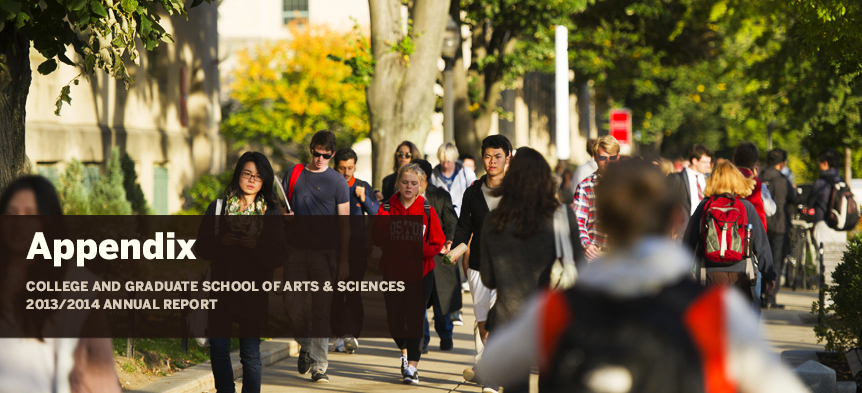
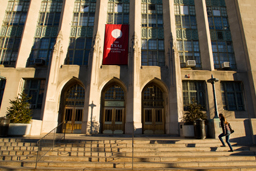

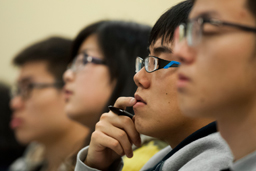
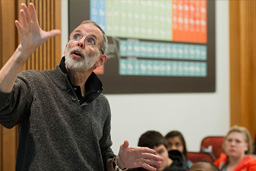
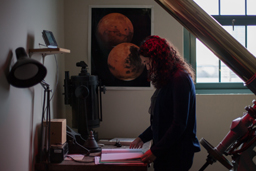
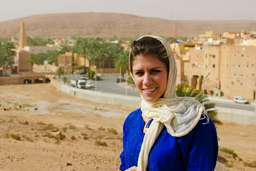



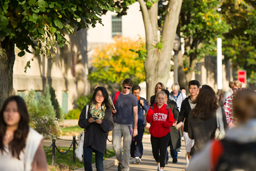 Appendix
Appendix